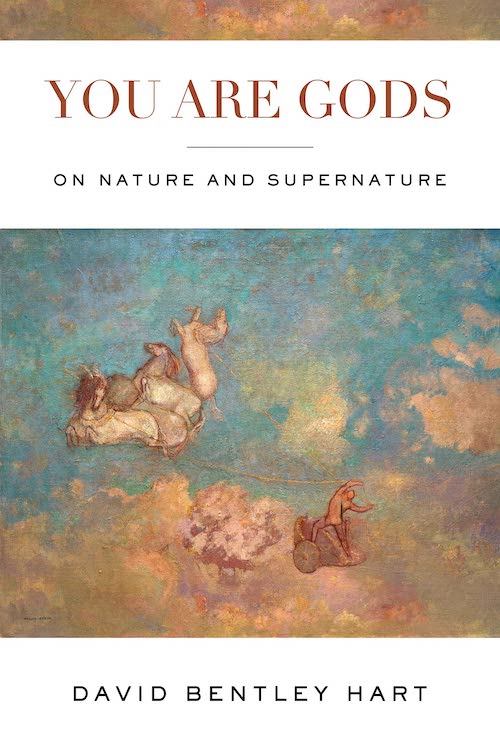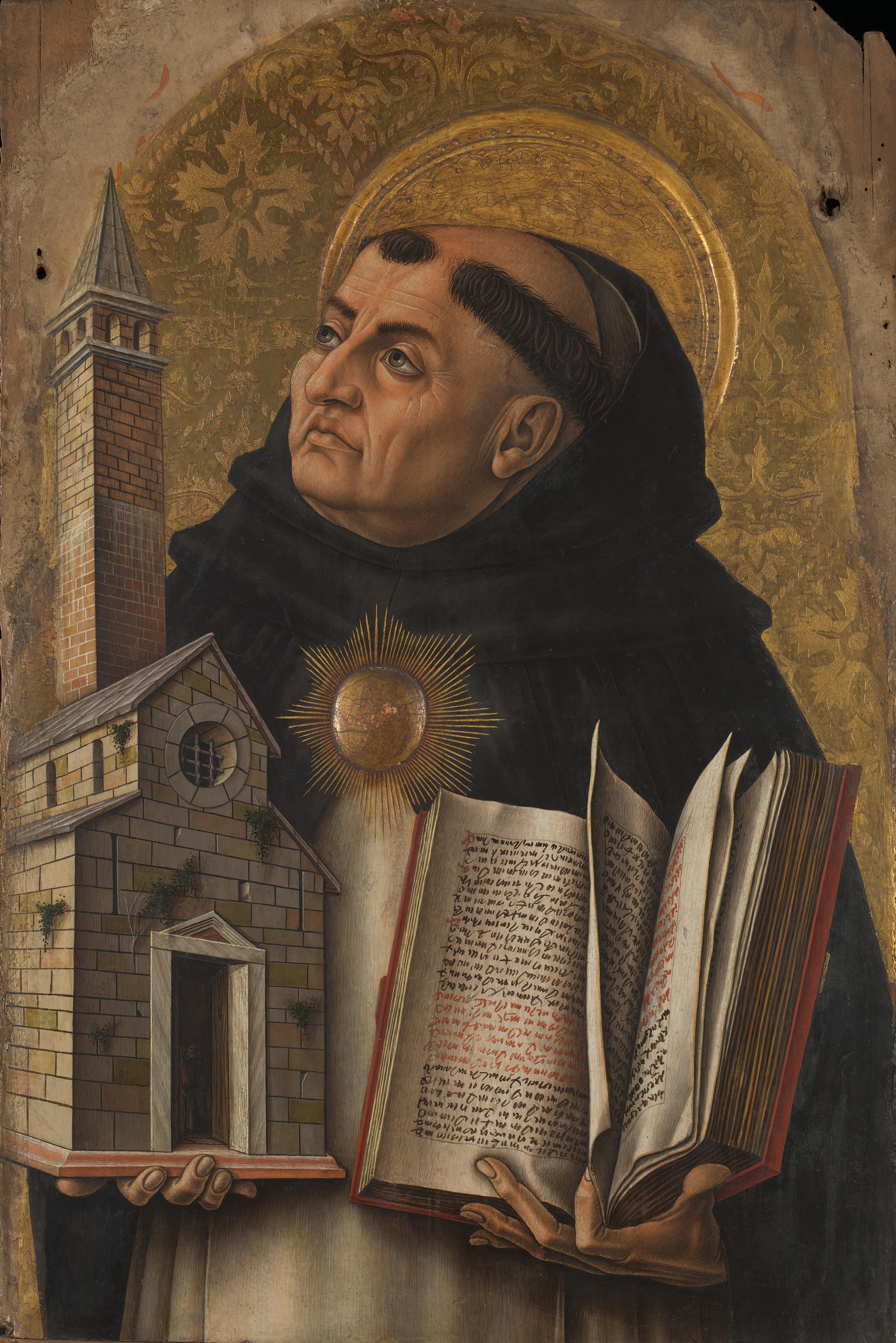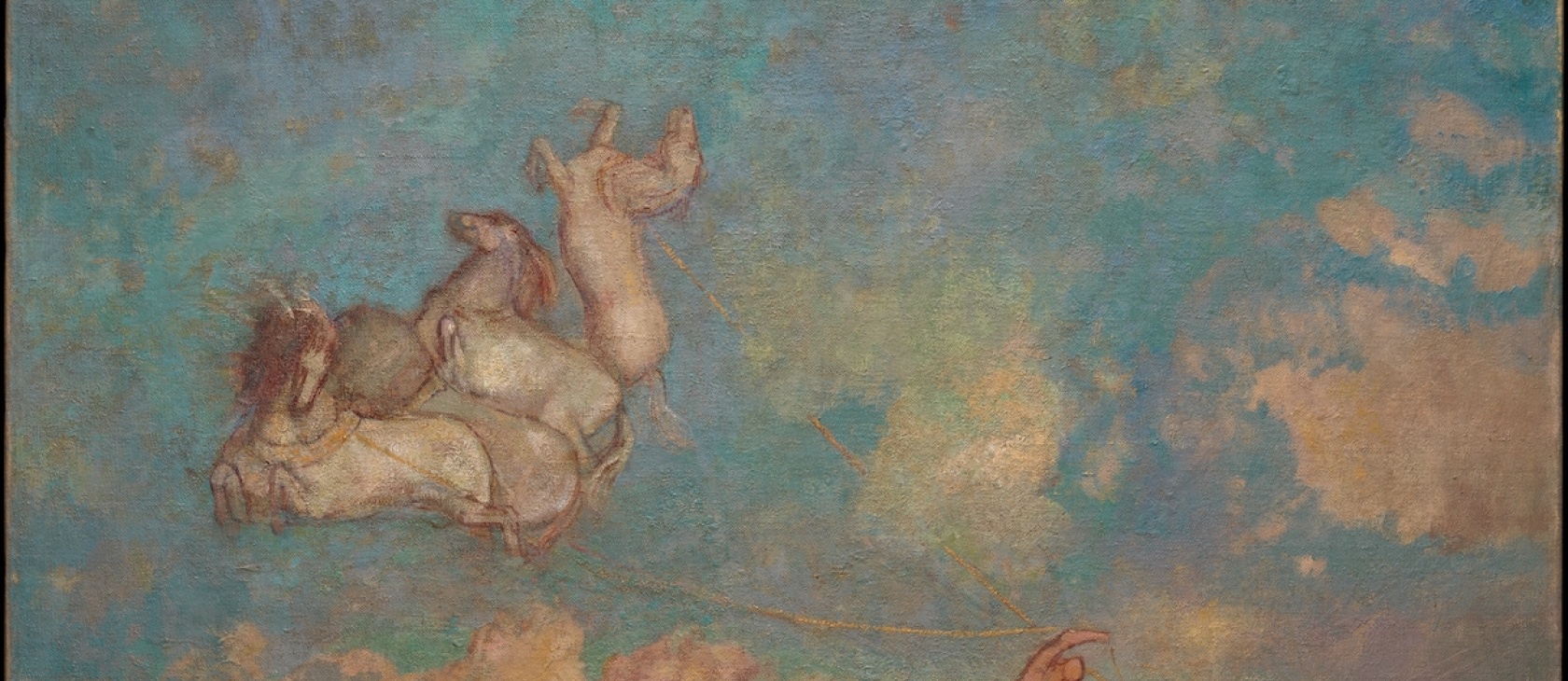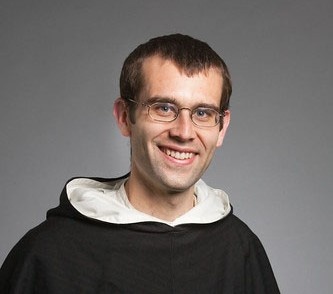David Bentley Hart’s new book takes its title from Jesus’ exchange with the Jews in John 10, in which he quotes a line from Psalm 82: “You are gods.” In Hart’s hands, Jesus’ quotation becomes an assertion: Christianity teaches that, at the end of the day, we are called to become gods or Gods. The book is vintage Hart, full of erudite expressions of a high vocalic register, and whether one agrees with Hart’s claims or not, he is always challenging and provocative. I’ll begin by summarizing the six chapters of the book, noting positive insights along the way, before turning to my fundamental criticism of the book: its profound lack of friendship, human and divine. Why is friendship important? Because although Jesus never asserts that we are gods, he does assert that we are friends (John 13).
Orthodox theologian David Bentley Hart takes aim at traditional Christianity in a new book that purports to take apart Thomism and the nature/grace distinction. Does he succeed?

By David Bentley Hart
(University of Notre Dame Press, 2022)
Hart’s book is a collection of recent pieces and only very broadly construed as being about the nature-supernature debate, although the first piece does directly relate to that tiresome trial of 20th-century Catholic theology. “Waking the Gods” unfolds as a nice summary of Jesuit theologian Henri de Lubac’s position, although in the end even de Lubac is not radical (or intellectually consistent) enough for Hart. As Hart summarizes the opposing “traditionalist Thomist” position, which apparently is back in favor among young Thomists, “human nature has no inherent ordination toward real union with God, and—apart from the infusion of a certain wholly adventitious lumen gloriae—rational creatures are incapable even of conceiving a desire for such union.” This means that God could (although He didn’t) “just as well have created a world in a state of natura pura, wherein the rational volitions of spiritual creatures could have achieved all their final ends and ultimate rest in an entirely natural terminus.” Hart argues, based on the structure of intentionality in knowing and willing, that this position is logically impossible: “Not even God could create a rational nature not called to deification, any more than he could create a square circle; to have received that call is precisely what it is to be a rational being.” Human nature never can be merely natural but is always already supernatural.
The second essay, “The Treasure of Delight,” continues Hart’s transcendental or phenomenological approach to nature and supernature by applying it to the late medieval German theologian Nicholas of Cusa. “We are capable of knowing anything at all only because the primordial orientation of our nature is the longing to know God as God, to see him as he is, rather than as some limited essence,” or as Nicholas of Cusa says, “Therefore you, God, are infinity itself, which alone I desire in every desire.” Once again Thomists are accused of logical incoherence: “‘Pure nature’ is an atrocity of reason.” According to Hart: “We are nothing but created gods coming to be, becoming God in God, able to become divine only because, in some sense, we are divine from the very first.” But “becoming God” is far more incoherent than “pure nature.”
After leaving the nature-supernature polemics, we get two essays in which Hart puts the Unity of the transcendentals thesis to work in moral reflection. The enemy here is no longer the Thomists but the Kantians, those who apparently separate goodness from beauty and truth. In “That Judgment Whereby You Judge,” Hart argues phenomenologically for the unity especially of beauty and goodness in moral judgments, or as Hart says, “The ultimate criterion of moral truth is beauty.” This may sound absurd at first, but it is not. Hart uses Rainer Maria Rilke’s final line of his poem on the Torso of Apollo (“You must change your life”) to good effect. Standing in the presence of great art one is to be judged rather than to judge, and the judgment is a moral one: “What kind of a man am I?” As Hart says, “The experience of beauty is necessarily also the experience of judgment: not the judgment we pass on whatever beautiful object we might encounter, but the judgment it passes on us.”
The next piece, “Pia Fraus” (“Pious Deceit”), treats moral judgment as well, this time in connection with the transcendental Truth (which Hart capitalizes to emphasis its connection to God’s view of things). Is it ever right to tell a lie? The Christian tradition from St. Augustine through St. Thomas all the way to Immanuel Kant gives an emphatic No. Hart says Yes. The key is Hart’s distinction between Truth and fact, where facts are something like the registering of worldly states of affairs and Truth is the registering of God’s view of things. Hart teases the distinction out by literary example: Fiction is not factual but nevertheless is true because of and not despite the fact. Hart asserts that when one lies, Truth and fact come apart, allowing for one to misstate facts in order to properly state the Truth. “In a fallen reality, there are times when the facts of the matter are ontological untruths, because they are privations of the Good.” Thus, in the classic case, when a Nazi comes to your door demanding to know if you are harboring Jews, you must lie to him in order to speak the Truth. I’m unpersuaded by this proposal for a number of reasons (e.g., who decides what counts as “Truth” which allows one to lie? Is the Truth/fact distinction even coherent when not referring to fictional matters? Or is all reality a sort of fiction?), but it seems a novel attempt to justify what (almost) everyone (now) takes to be the right thing to do when Nazis come to your door.
The target of the final two essays shifts from Kantians to, I dare say, Christians. “Geist’s Kaleidoscope” is an essay in celebration (by devastating criticism!) of Cyril O’Regan’s genealogy of modern Hegelian and Protestant theology as a “return of gnosticism.” Hart’s response to O’Regan is twofold: First, the moderns fled from instead of returned to gnosticism. Second, gnosticism is an inherent tendency of Christianity because gnostics, according to Hart, get Christianity right. Hart does remind readers that St. Paul and the early Christians had an “apocalyptic vision” and saw Christianity as much more a battle of spirits than we post-Leibnizians see things. The essay also contains a nice reminder that “tradition” is a much more complicated and constructed experience than supposed, “an often fitful invention of willfully ambiguous and hitherto unprecedented models of confession, usually as compromises between genuinely contradictory positions, successfully capturing something of the force of what preceded them, but only in the shape of synthetic formulations that also deeply altered much of the meaning of past beliefs and practices.” For Cardinal Newman, “To be deep in history is to cease to be Protestant.” For Hart, “To be deep in doctrinal history is to cease to be Newmanian.”

The final essay, “The Chiasmus,” is a collection of paragraphs recapitulating some claims made in the earlier pieces, but also adding a decidedly Trinitarian nuance to the discussion. With the advent of Trinitarian dogmatic formulations, “creation ... was revealed as being ‘located’ nowhere but within the very life of God as God.” Again: “It is from this original ‘circle of glory’ that the logic of created being unfolds: a specular ontology, according to which creation is constituted as simply another inflection of an infinite light, receiving God’s effulgence as that primordial gift that completes itself in summoning its own return into existence.” The good part of this is a reminder that salvation is about incorporation into the Trinity, not just into Christ. The dangerous part is that creation becomes this incorporation, not salvation. What else could “another inflection” mean when the first is the Trinitarian processions? Thus Hart makes statements that seem as if we always existed, such that we agreed with our creation in the way that God agrees with Himself in Trinitarian actions. “And so, then, it must also be true that no creature can exist as spirit except by its free acceptance of the invitation to arise from nothingness, and by intending itself in intending its final cause.” Accepting to be created—that’s either completely metaphorical or completely incoherent. What, after all, would it mean to refuse?
As I said in the opening, it seems that friendship, not divinity, is the mark of a Christian according to Jesus’ assertion in the Gospel of John, and friendship is a form of loving another person as another self. This means, at least, seeking to rightly listen to and understand the other so as to be united to him or her. And this is something Hart fails to do throughout this book. Hart doesn’t love Thomists or Kantians or, I fear, traditional Christians, and thus misrepresents them all on his way to a nouveau-gnostic Christianity. Hart’s first two essays accuse Thomists of logical incoherence in arguing for pure nature; but his claims are both insufficient and unnecessary. Insufficient because his putative proof of the logicalimpossibility of pure nature is based on a phenomenological experience: the structure of intentionality—the structure of how thinking about any object works. But phenomenology can, at best, show metaphysical impossibility: that it is impossible, given this world, that pure nature exist; but it cannot prove that it is logically impossible in all worlds. Thomists are entirely immune to Hart’s challenge on this, and the atrocity of reason is rather Hart’s conflation of logical with metaphysical impossibility. But Hart’s accusation is also unnecessary, for his position is surely a straw-Thomist: I know of no Thomist who argues that human nature is created without grace, or that the Fall from grace in Eden is a return to pure nature. Rather, the Fall brings about wounded nature because, for Thomists, created nature is a historically and primordially graced nature. Finally, charging traditional Thomism with being an “early modern” hijacking of St. Thomas is a bit rich when one uses an “early modern” approach from Kant—transcendental argumentation—developed by very modern Catholics like Bernard Lonergan and Maurice Blondel and applies it to Cusa and the Christian tradition.
The second two essays continue this trend, this time in regard to Kant. In the first, Hart charges Kant with separating goodness from beauty, but as he surely knows, this is exactly what Kant was trying not to do in his third Critique: Aesthetic judgment was to serve as the bridge between truth and goodness such that Kant himself argued for the unity of transcendentals thesis, not against it. More to the point, in the piece on lying, Hart is entirely unfair to Kant in charging him with defending the categorical imperative against lying by consequentialism. This is uncharitable nonsense. Kant’s argument is not that lying would lead to bad results (consequentialism), but that lying would make rational discourse unintelligible. Whether Kant is right is another matter, but he is not making an extrinsic or consequentialist argument. Rather, he is making an intrinsic or transcendental argument (which Hart should like!) such that lying would undermine the very condition of rational discourse. Hart should know that deep thinkers deserve to be read charitably, in attempted intellectual friendship, on their most important points.
Hart doesn’t love Thomists or Kantians or, I fear, traditional Christians, and thus misrepresents them all on his way to a nouveau-gnostic Christianity.
Finally, Hart’s last two essays take aim at Christianity itself, at least as anyone would normally construe it, for it takes aim at Christ’s Incarnation, which apparently is not that important, since gnostics in the early Church clearly denied it. And yet, according to Hart, these gnostics are less heterodox than Thomists: “Really, compared to the teachings by which the early ‘gnostic’ or proto-gnostic sects allegedly departed from the beliefs of the apostolic age, much of that same Thomist tradition is far more extravagantly heterodox.” This, I submit, is a most uncharitable reading of not only the Thomist tradition but also of orthodox Christianity itself, which through the Pauline and Johannine writings, including the Gospel of John, waged war on gnostics who denied not only the true divinity of Christ but also his true humanity, his Incarnation.
David Bentley Hart has given us here a profoundly unfriendly vision of Christianity in two very nontrivial senses. First, in the way he treats his interlocutors, misrepresenting them instead of trying to understand them rightly. Second, and more importantly, in the vision of Christianity which is presented. For in this vision, Jesus calls us not so much to charity of divine friendship with Him, but rather to something like identity with the Trinity itself, creation being just another “inflection” of the inner activity of God. To this one must say: No, we are not gods, nor called to be gods in a pantheistic or panentheistic sense. We are called friends and partakers of the divine nature, and that indeed only by the grace of God. This unfolds in the raising of our natures to supernatural life as was intended from the very beginning, a raising reoffered because of Christ’s Incarnation but especially his Passion, an act of divine friendship. As Jesus himself says in John 15: “Greater love has no man than this, that a man lay down his life for his friends.” Gods have no need of saving, but friends most certainly do.




